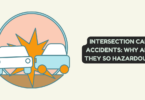
SEO
SEO is easily the most complex component of digital marketing — which is unfortunate, considering it is also perhaps the most important digital marketing activity for any business. Twenty years ago, almost anyone could confuse Google’s spiders and rank highly in search results simply by packing their webpages full of target keywords, but today, the algorithm has become so sophisticated that SEO experts have developed advanced tactics and technologies for inching a website up the results page.
In fact, SEO has become so difficult to understand that the average business leader is typically confused by even the most basic SEO jargon. Though anyone overwhelmed by SEO should surely outsource their SEO strategies to reputable white label SEO firms, here is a small business leader’s guide to some of the more often confused concepts in SEO:
SERPs
SERP stands for Search Engine Results Page. When a web user submits a query to Google (or another search engine), the next page that loads will be filled with results; that’s the SERP. Most search engines will produce hundreds of SERPs for a single query, but abysmally few users will navigate beyond the first page. Therefore, businesses need to make a goal of their SEO strategy to appear on the first page of the SERP for certain keywords.
Recently, Google has optimized their SERP to prevent the need for users to navigate to different webpages. So-called zero-click SERPs tend to have a featured snipped at the top or a panel to the right containing useful information related to a user’s query. Some studies have found that less than half of Google searches result in a click, but Google denies these claims. Regardless, SEO can help businesses provide the information necessary to be featured in a snippet or garner user attention in other ways.
There is a type of SEO that focuses on improving the attractiveness of search results that appear on the SERP, encouraging web users to click that link and visit that webpage. This is called on-SERP SEO because it only alters content that will be visible to users scrolling through SERPs. Some attributes involved in on-SERP SEO include a webpage’s meta title, meta description and text around keywords likely to be used as a featured snippet.
Ranking
In SEO, ranking is the term used to describe a webpage’s position on a SERP. A high ranking suggests that a webpage appears within the first few results on the first SERP; a low ranking suggests that a webpage appears near the bottom or not on the first SERP at all. Google isn’t fully transparent regarding what webpage factors can increase ranking, though savvy SEO experts have identified some of the shared attributes of high-ranking pages, such as quality of content, page speed and more.
Algorithm
An algorithm is a set of rules that a computer follows to engage in some kind of operation. Search engines use algorithms to process search queries, scan their indexed webpages and populate SERPs. Search engine algorithms are highly protected trade secrets because they are the fundamental technology attracting users to a search engine’s website. Google does not divulge the details of its search algorithm; in truth, Google’s algorithm is so complex that there might not be a single employee within Google who understands the entire thing. However, as mentioned above, calculating SEO experts have identified some of the more important aspects of Google’s algorithm, allowing them to create strategies that manipulate search results in their clients’ favor.
Penalties
Google wants to encourage the natural growth and development of the web, which involves the creation of organic, high-quality content that users want and need. However, SEO practices are not usually natural or organic; they are paid solutions to help businesses influence search results and improve their profits. Thus, Google strives to punish blatant SEO that reduces the quality of the internet for everyone. Penalties for bad SEO include lower rankings and perhaps de-indexing, meaning that a penalized webpage might not appear on any SERP. Working with a trustworthy SEO provider should prevent penalties from occurring.
Keywords
Perhaps the most confusing SEO jargon, keywords are not words at all. A more accurate name would be “search term,” as most keywords are phrases that users integrate into their queries. Webpages need to include keywords to appear on SERPs using them — but keywords cannot appear too often, or a webpage is likely to receive penalties for keyword stuffing. Usually, the more specific a target keyword, the better, as users are more often making long, natural-language search queries. Shorter keywords tend to be more competitive, as a larger number of businesses are striving to rank using them.
SEO only promises to become more complex. Small business leaders already confused by SEO jargon need to outsource their SEO strategies and practices today.






